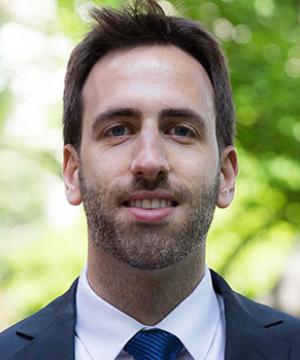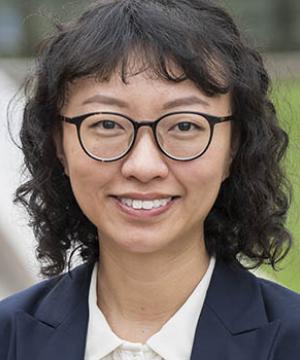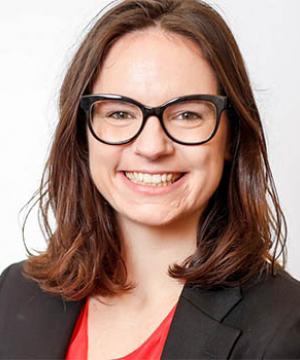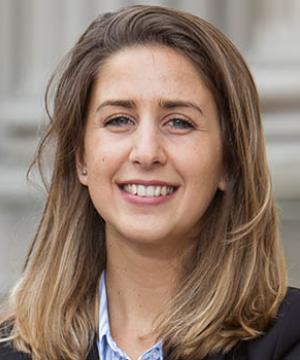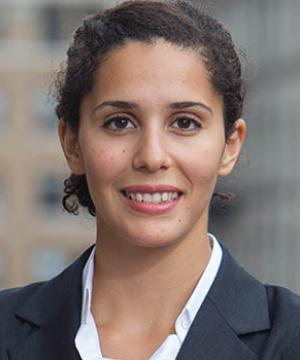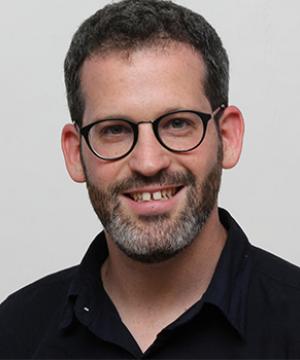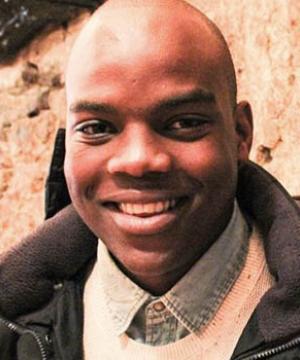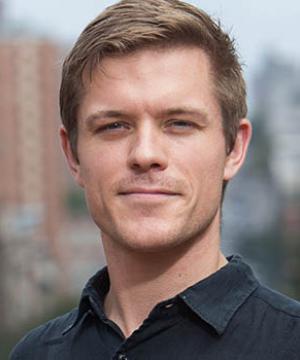Eight LL.M. Students Awarded Postgraduate Public Interest Fellowships
These 2018 graduates are pursuing social justice and human rights careers in Asia, Australia, Latin America, and the United States.
The prestigious LL.M. Postgraduate Public Interest and Government Fellowships are awarded annually to Columbia Law School students who have demonstrated a substantial interest in and preparation for public service careers. This year, eight exceptional LL.M. students from the Class of 2018 received fellowships.
“The fellowships allow LL.M. graduates to further hone their experience, skills, and professional networks in a diverse array of public interest and human rights fields,” says Dean of Social Justice Initiatives and Public Service Lawyering Erica Smock ’95. “And they provide nonprofit organizations or government agencies with the services of talented and motivated lawyers with unique backgrounds and experience.”
Columbia Law School’s Social Justice Initiatives assists fellowship applicants in identifying the host public interest organizations or government agencies, and the Law School provides stipends to the selected fellows to support their work for up to one year. Dean of Graduate Legal Studies Sylvia T. Polo says the fellowships represent the Law School’s commitment to supporting LL.M. students beyond graduation. “It is our mission to see our students become leaders in their chosen fields,” says Polo. “I have the confidence that this year’s LL.M. postgraduate fellows have the ability and determination to change the world for the better.”
Juan Manuel Chiesa ’18 LL.M.
Public International Law & Policy Group
Formerly a corporate lawyer in Buenos Aires, Juan Manuel Chiesa came to Columbia Law School as a Fulbright Scholar after working for a year as the legal adviser to Argentina’s under-secretary for the protection of human rights. During his LL.M. year, he concentrated on acquiring a comprehensive theoretical framework for practicing public international law.
Chiesa gained invaluable real-world experience through an externship with the U.N. Committee Against Torture and as a research assistant for JoAnn Kamuf Ward, the director of the Human Rights in the U.S. Project at Columbia Law’s Human Rights Institute. He chose a fellowship at Public International Law & Policy Group (PILPG), a global pro bono law firm based in Washington, D.C., because of its mission to provide free legal assistance to parties involved in peace negotiations, drafting post-conflict constitutions, and war crimes prosecutions. PILPG undertakes projects in Asia, Europe, the Middle East, North Africa, and sub-Saharan Africa.
“This fellowship represents an exceptional opportunity to do substantive legal work in public international law,” he says. “I will gain access to a global network of colleagues and clients and attend events at organizations showcasing world leaders, helping me to dramatically expand the network I started building in New York.”
Fiona Chong ’18 LL.M.
Refugees International
Before Fiona Chong enrolled at Columbia Law, she had extensive experience as a pro bono attorney for individuals seeking asylum in Australia. She also had co-authored a book, Refugees: Why Seeking Asylum Is Legal and Australia’s Policies Are Not, with Jane McAdam, her law professor at the University of New South Wales. Chong, who was a 2017–2018 Human Rights Fellow, used her LL.M. year to hone strategies for human rights advocacy and obtained local field experience through the Bronx Defenders on Holistic Defense Externship.
As a fellow in the Washington, D.C., office of Refugees International, an independent advocacy organization, Chong will delve into “complex and interrelated factors—including climate change, armed conflict, and persecution—which lead to human displacement,” she says. Refugees International, she notes, is well respected for its rigorous research and “fearless advocacy for timely responses” to displacement crises. “The fellowship,” she says, “will be a valuable platform for putting what I have learned at Columbia into practice.”
Anna Dannreuther ’18 LL.M.
Immigration Law Unit of the Legal Aid Society of New York
Anna Dannreuther says she first began to dream of working as a public interest lawyer while assisting Lawyers Against Poverty, a project run by Oxfam, the nonprofit devoted to ending poverty around the world. As a lawyer in training in London, she volunteered for a fact-finding mission to the Zaatari refugee camp, in Jordan. And having also worked for a year in several international human rights courts, she knew what public interest lawyers could achieve and was excited to be part of their world.
As a Columbia LL.M. student, she says, “everything clicked” when she began working at the Legal Aid Society as part of the Law School’s Immigration Defense Externship. “I was defending detained clients in removal proceedings, many of whom were incredibly vulnerable,” she says, adding she found the work challenging and meaningful. Another of Dannreuther’s defining experiences at Columbia was participating in a Spring Break Pro Bono Caravan. At a family detention center in Karnes County, Texas, she helped prepare women and children for their asylum interviews and collected data on the “horrific conditions they had been subjected to in detention,” she says. “Women refugees can be very vulnerable yet are a remarkably resilient segment of society, whom I intend to dedicate my career to assisting.”
Dannreuther will refine her litigation skills during her fellowship in the Immigration Law Unit of the Legal Aid Society in New York City. After the fellowship, she plans to practice immigration defense law in her native England. “In the current climate, American immigration defense attorneys are mounting ever more creative and impressive legal strategies,” she says. “Having worked on immigration defense in the United States will be a huge asset.”
María Dinard ’18 LL.M.
Instituto de Estudios Comparados en Ciencias Penales y Sociales
María Dinard arrived at Columbia with a well-rounded view of the challenges facing the criminal justice system in her native Argentina. She had spent two years investigating juvenile criminal cases for a prosecutor in Buenos Aires and five years as a lawyer for the Center for Legal and Social Studies, a nongovernmental organization devoted to strengthening the democratic system in Argentina. She observed firsthand how ineffective investigations and a slow legal system contributed to injustice. “The existence of wrongful convictions,” she says, “confirms the state is failing to uphold the standards informing the right to a fair trial.”
As a Fulbright Scholar in Columbia’s LL.M. program and a 2017–2018 Human Rights Fellow, Dinard focused on criminal law so that she could return to Argentina with new ideas and strategies for criminal justice reform. Her externship with the Bronx Defenders was instructive and enlightening. “I had the opportunity to witness how the adversarial process works—its strengths and weaknesses in theory and practice,” she says.
This month, she began her fellowship at the Instituto de Estudios Comparados en Ciencias Penales y Sociales, a foundation in Buenos Aires whose mission is to help strengthen the rule of law in Latin American and Caribbean countries. “My long-term goal is to reduce courts’ reliance on faulty and unreliable evidence,” she says, “and to combat a system where many cases are resolved by pleas and where the innocents are not distinguished from the guilty.”
Dounia Hattabi ’18 LL.M.
Asia Justice and Rights
A graduate of the Sorbonne Law School, Dounia Hattabi arrived at Columbia with a truly international C.V., having worked at the Special Tribunal for Lebanon and the International Criminal Court in The Hague, the Extraordinary Chambers in the Courts of Cambodia, as well as at the Chinese University of Hong Kong. A 2017–2018 Human Rights Fellow, and the 2017 Baker McKenzie Scholar, she enrolled in the Law School’s LL.M. program and took full advantage of the offerings in human rights, citing Professor Sarah Cleveland and Visiting Professor Amal Clooney as strong influences on her thinking.
As part of Lecturer in Law Hina Shamsi’s international human rights advocacy seminar, Hattabi completed her final research paper on martial law and suspension of habeas corpus in Mindanao in the Philippines. She assisted Professor Cleveland in Geneva at the 122nd session of the U.N. Human Rights Committee as part of the Advanced Human Rights Practicum and volunteered for the Central African Republic Project at the Human Rights Clinic. “In Columbia’s legal community, I found the ideal space and structure to explore what it means to be a human rights lawyer,” says Hattabi. “I now want more specifically to learn how to strategically and efficiently craft legal advocacy strategies in direct partnership with local organizations and actors of change.”
As a fellow at Asia Justice and Rights, a nonprofit based in Jakarta, Indonesia, with field offices in Dili in East Timor and Yangon in Myanmar, she plans to work closely with victims of human rights violations to promote accountability for widespread abuses. “I need to connect my existing global education and work experience with a local perspective on rights by practicing community-based, bottom-up human rights lawyering,” she says. “My long-term plan is to become a legal expert on social change in situations of grave human rights violations.”
Amos Laor ’18 LL.M.
Service Employees International Union, Local 32BJ
Amos Laor, an Israeli labor lawyer, used his LL.M. year to gain an advanced knowledge of workers’ rights issues and human rights advocacy skills. As a member of the Law School’s Human Rights Clinic, he participated in a year-long project to support undocumented dairy farm workers in Vermont in their fight for fair working conditions. “It was exciting to work on a project that employed pioneering strategies to secure workers’ rights in supply chains,” he says.
Laor will put his education into action as a fellow in the legal department of the Service Employees International Union, Local 32BJ, which represents more than 164,000 property service workers including cleaners, maintenance workers, and security officers. During his time at Local 32BJ, he will be involved in representing union members before the National Labor Relations Board as well as in analyzing municipal public policies and their impact on workers’ rights. “The fellowship will allow me to utilize my professional experience and my studies at Columbia Law School to contribute to the labor movement in a very challenging moment,” he says.
Kevin Minofu ’18 LL.M.
Independent International Legal Advocates
Growing up in South Africa as the son of immigrants from Malawi, Kevin Minofu was keenly aware of how the law can “reify domination and inequality.” But he also realized that the law could “help us come together to solve global issues,” he says.
Determined to use legal tools to help improve conditions in “the continent of which I am a proud citizen,” Minofu pursued an LL.M. to gain expertise in international law, constitutional law, and human rights. “I chose Columbia because of its outward-looking and cosmopolitan ethos,” he says.
Working in Columbia’s Sexuality and Gender Law Clinic, Minofu assisted a gay Nigerian man with his U.S. asylum application and also contributed to the preparation of a report into workplace sexual harassment that was published by the New York City Commission on Human Rights.
To fulfill the LL.M. Writing Project requirement, he traveled on his own to Nairobi, Kenya, to meet with Kenyan government and World Bank officials and research antitrust law policy and economic growth funded by the Columbia Global Policy Initiative. The experience solidified his passion for international law and policy work.
Minofu will gain more hands-on experience as a fellow at Independent International Legal Advocates (IILA), a recently launched nonprofit based in Brooklyn. “I was immediately drawn to IILA,” he says, “because its mission—to provide developing countries with the necessary legal support to compete in a fast-paced and highly unequal politicized area—closely accords with my personal values to work for the disadvantaged and promote real solutions to global problems.”
Julian Redmond Murphy ’18 LL.M.
Indigenous Justice and Exoneration Project
Julian Redmond Murphy came to Columbia with an undergraduate degree in law from the University of Melbourne and experience representing underserved indigenous people in Australia’s remote Northern Territory.
As an LL.M., he chose classes that would expose him to “models of social justice lawyering well beyond my previous experience,” he says. Murphy cited the Racial Justice Advocacy Workshop and the Lawyer Leadership: Leading Self, Leading Others, Leading Change course as especially instructive by examining examples of successful judicial advocacy. “These models combine individual legal representation with social organizing, media campaigns, political lobbying, and community legal education,” he says.
Murphy, also a 2017–2018 Human Rights Fellow, says his aim now is to develop a career as “a more holistic” public interest lawyer, combining strategic litigation with advocacy efforts. As a fellow at the Indigenous Justice and Exoneration Project, a small volunteer organization that operates out of Charles Darwin University in Australia’s Northern Territory, he expects to accrue on-the-ground experience in outreach and community organizing as well as coordinating litigation and advocacy. “I am particularly excited about the prospect of developing a series of prison-based criminal justice education workshops to engage incarcerated and formerly incarcerated individuals in policy debates.”
###
Related Reads:
Published on June 8, 2018
